
The politics of Italy are conducted through a parliamentary republic with a multi-party system. Italy has been a democratic republic since 2 June 1946, when the monarchy was abolished by popular referendum and a constituent assembly was elected to draft a constitution, which was promulgated on 1 January 1948.

The House of Freedoms was a major centre-right political and electoral alliance in Italy, led by Silvio Berlusconi.

Romano Antonio Prodi is an Italian politician, economist, academic, civil servant, and manager who served as the tenth president of the European Commission from 1999 to 2004. He served twice as Prime Minister of Italy, first from 18 May 1996 to 21 October 1998, and then from 17 May 2006 to 8 May 2008. Prodi is considered the founder of the Italian centre-left and one of the most prominent and iconic figures of the so-called Second Republic. He is often nicknamed Il Professore due to his academic career.
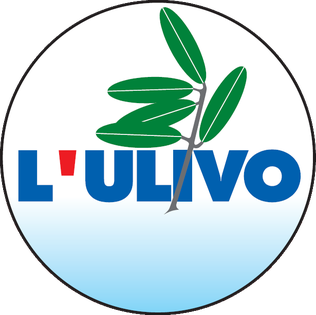
The Olive Tree was a denomination used for several successive centre-left political and electoral alliances of Italian political parties from 1995 to 2007.

Democracy is Freedom – The Daisy, commonly known simply as The Daisy, was a centrist political party in Italy. The party was formed from the merger of three parties within the centre-left coalition: the Italian People's Party, The Democrats and Italian Renewal. The party president and leader was Francesco Rutelli, former mayor of Rome and prime ministerial candidate during the 2001 general election for The Olive Tree coalition, within which The Daisy electoral list won 14.5% of the national vote.

The Union was an heterogenous centre-left political and electoral alliance of political parties in Italy. The Union was the direct heir of The Olive Tree coalition which represented the centre-left in the 1996 and 2001 general elections. However, The Union also included parties of the radical left, which were not affiliated with The Olive Tree. The Union was led by Romano Prodi, Prime Minister of Italy from May 2006 to May 2008, and former President of the European Commission. Collapsing in the wake of the 2008 Italian political crisis, the alliance was succeeded by the current-day centre-left coalition.

The Italian People's Party was a Christian-democratic, centrist, Christian-leftist political party in Italy. The party was a member of the European People's Party (EPP).

The Democrats were a centrist and social-liberal political party in Italy.

This article describes the party affiliations of the leaders of each member-state represented in the European Council during the year 2006. The list below gives the political party that each head of government, or head of state, belongs to at the national level, as well as the European political alliance to which that national party belongs. The states are listed from most to least populous. More populous states have greater influence in the council, in accordance with the system of Qualified Majority Voting.

This article describes the party affiliations of leaders of each member-state represented in the European Council during the year 2008. The list below gives the political party that each head of government, or head of state, belongs to at the national level, as well as the European political alliance to which that national party belongs. The states are listed from most to least populous. More populous states have greater influence in the council, in accordance with the system of Qualified Majority Voting.
The Olivists (Ulivisti) are a faction within the Democratic Party (PD), a political party in Italy.

This article describes the party affiliations of leaders of each member-state represented in the European Council during the year 2009. The list below gives the political party that each head of government, or head of state, belongs to at the national level, as well as the European political alliance to which that national party belongs. The states are listed from most to least populous. More populous states have greater influence in the council, in accordance with the system of Qualified Majority Voting.

This article describes the party affiliations of leaders of each member-state represented in the European Council during the year 2010. The list below gives the political party that each head of government, or head of state, belongs to at the national level, as well as the European political alliance to which that national party belongs. The states are listed from most to least populous. More populous states have greater influence in the council, in accordance with the system of Qualified Majority Voting.
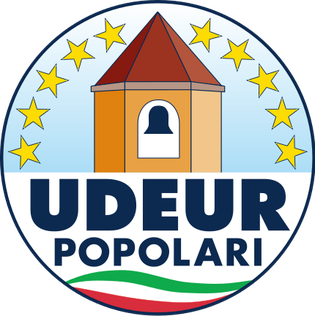
The Union of Democrats for Europe, also known as UDEUR Populars, was a minor centrist, Christian-democratic political party in Italy.

This article describes the party affiliations of leaders of each member-state represented in the European Council during the year 2011. The list below gives the political party that each head of government, or head of state, belongs to at the national level, as well as the European political alliance to which that national party belongs. The states are listed from most to least populous. More populous states have greater influence in the council, in accordance with the system of Qualified Majority Voting.

This article describes the party affiliations of leaders of each member-state represented in the European Council during the year 2012. The list below gives the political party that each head of government, or head of state, belongs to at the national level, as well as the European political alliance to which that national party belongs. The states are listed from most to least populous. More populous states have greater influence in the council, in accordance with the system of Qualified Majority Voting.
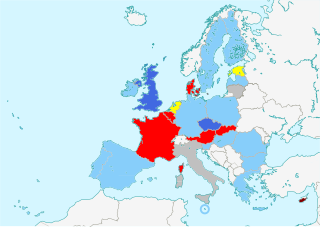
Until 1 July 2013 the European Union will have twenty-seven members. On that date, Croatia is expected to join the Union, therefore forcing a change of the influence each member-state has, as well as its Qualified Majority Voting. This article describes the party affiliations of leaders of each member-state represented in the European Council during the year 2013. The list below gives the political party that each head of government, or head of state, belongs to at the national level, as well as the national level to which that national party belongs. The states are listed from most to least populous. More populous states have greater influence in the council, in accordance with the system of Qualified Majority Voting.
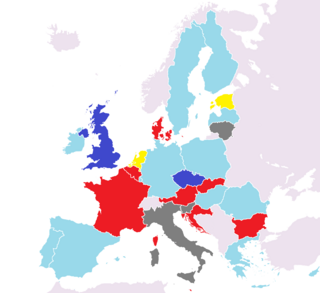
Since 1 July 2013 the European Union have twenty-eight members. Croatia joined the Union, therefore forcing a change of the influence each member-state has, as well as its Qualified Majority Voting. This article describes the party affiliations of leaders of each member-state represented in the European Council during the year 2013. The list below gives the political party that each head of government, or head of state, belongs to at the national level, as well as the European political alliance to which that national party belongs. The states are listed from most to least populous. More populous states have greater influence in the council, in accordance with the system of Qualified Majority Voting.
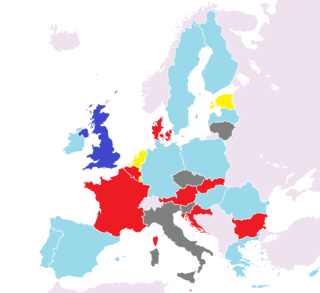
This article describes the party affiliations of leaders of each member-state represented in the European Council during the year 2014. The list below gives the political party that each head of government, or head of state, belongs to at the national level, as well as the European political alliance to which that national party belongs. The states are listed from most to least populous. More populous states have greater influence in the council, in accordance with the system of Qualified Majority Voting.
The centre-left coalition is an alliance of political parties in Italy active, under several forms and names, since 1995 when The Olive Tree was formed under the leadership of Romano Prodi. The centre-left coalition ruled the country for more than thirteen years between 1996 and 2021.


















